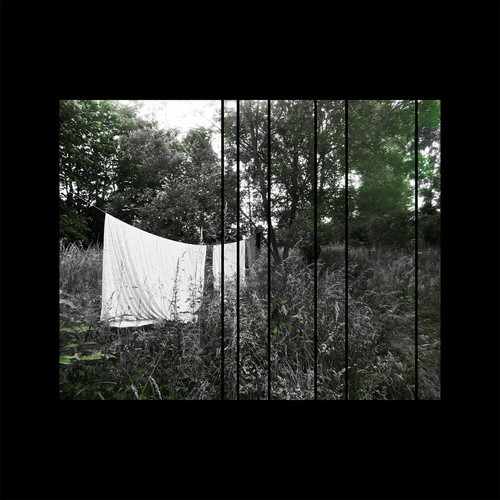Marc Euvrie has written records with boorish, ambitious concepts for years. Under his current guise, The Eye Of Time, Euvrie has taken a step away from the French DIY punk scene where he found his feet, to personally reflect on the world with the classically-trained skills he picked up as a child. His 2012 self-titled debut was bleak, and was made up of toe-tappers like ‘My Hate Is A Gun, See the Smile On My Face’ and ‘I Hate Your Fucking Eyes’. Acoustic, however, as the press release states, is his attempt to find "a little glimpse of hope" and "strength to keep fighting for the nature of things and their vital qualities".
Opening with a short breath, Euvrie takes a plunge into piano solo ‘Deadsea, Cisjordan’. Each one of the songs on Acoustic are composed for a specific location and a specific point in time. We take solace in the complex beauty of ‘Rondane, Norway’ in the year 750, yet are soon made to witness the atrocities of Treblinka Extermination Camp in 1943. A bold concept, it provides a sort of emotional anchor for the listener, but it’s limiting at the same time: Euvrie’s abstract, atmospheric songwriting feels like it should stimulate an intuitive response, but the specifics of the titles have a prescriptive emotional effect.
There’s a grandiose orchestral quality to this album, which, knowing Euvrie’s work, comes as a surprise. Where his self-titled debut record was jagged, small and awkward, Acoustic is smooth and rich. ‘Exarchia, Athens, Greece, September 2008 – February 2009’ has a shining physique that you’ll seldom find in recorded contemporary classical music. A broad sound allows you to appreciate the piece’s gorgeous individual threads and grand composition. The release’s premiere component, the piano, is warm and substantial; the gently insistent waves of right-hand keys on ‘Somewhere, 2041’ being the ideal depiction.
Though Euvrie strives to find "a little glimpse of hope" in Acoustic, this is an inescapably cold record. At its simplest, the two instruments which are used on the record, piano and cello, feel detached. These two beings, androgynous in nature, co-exist but endlessly struggle to develop any real kind of relationship with one another. Even the incandescent ‘Athens’ is held down by an unusual force: there’s expectant optimism here, but it is marred by an abstract pressure. It’s almost as if, regardless of tonality, the prominent motifs within the songs are always searching for a route to escape.
Whilst there are developments in the aesthetics, as a resolute composition Acoustic shares a lot of common ground with its self-titled predecessor. Even in their most tender moments, both records are utterly aphotic and exhausting. In an interview in the wake of his debut’s release, Euvrie spoke of his disappointment of failing to communicate through his music how he "loves life so much" but has a "hundred things to resolve for himself". It is difficult to argue that Acoustic illustrates an emotional evolution or dynamism but is instead more appropriate to acknowledge it as a continuing exploration of distress. Though we skirmish through time, it is part of one melancholic movement: it’s almost as if Euvrie is making a grander statement about an autonomous, delicate sadness, which is ingrained into nature itself.
<div class="fb-comments" data-href="http://thequietus.com/articles/15604-the-eye-of-time-acoustic-review” data-width="550">


